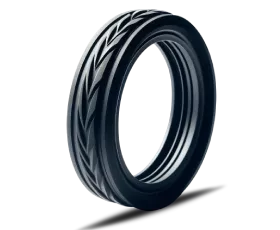How to Start Rubber Wholesale Business: A Comprehensive Guide
The rubber wholesale business is a dynamic industry involving the procurement and distribution of rubber products in large quantities. From rubber sheets to industrial rubber extrusions, companies in this sector play a crucial role in supplying various industries and businesses. This article outlines the steps to initiate a rubber wholesale business, delves into the legal requirements, and sheds light on the tax implications associated with this venture.
Key Notes:
- Launching a rubber wholesale business involves procuring and distributing a range of rubber products at scale, from sheets to industrial extrusions.
- Essential steps include market research, developing a comprehensive business plan, and ensuring legal compliance and a reliable supply chain.
- Financial planning, strategic marketing, and understanding tax implications, alongside legal compliance and quality standards, form the core elements for establishing and sustaining success in this dynamic industry.

Types of Rubber Products for Wholesale:
Rubber products come in diverse forms, catering to different industrial needs. The primary types of rubber available for wholesale are natural rubber, synthetic rubber, and silicone rubber. Some common rubber products for wholesale include rubber sheets, rubber mats, rubber extrusions, rubber seals, electrical safety matting, commercial-grade rubber, and plastics. Additionally, wholesalers may offer various rubber types and sizes such as Neoprene Rubber, BUTYL Rubber Rolls, Nitrile Rubber, and Viton Rubber.
Searching business plan writers near me? Contact us now!
Starting a Rubber Wholesale Business:
Embarking on a rubber wholesale business involves meticulous planning and strategic execution. Here are the key steps to initiate and run a successful venture:
Market Research:
Gain insights into the market demand for various rubber products, pinpoint potential customers, and analyze industry competitors using effective market research tools.
SurveyMonkey:
User-friendly and versatile, SurveyMonkey is excellent for creating and analyzing surveys, and providing valuable quantitative data.
Google Trends:
A powerful tool for tracking the popularity of search queries, Google Trends helps in understanding the evolving interests and trends in your industry.
SEMrush:
Specifically designed for digital marketing research, SEMrush offers insights into competitors’ strategies, keywords, and overall online presence.
Hotjar:
Hotjar is invaluable for understanding user behavior on your website, offering features like heatmaps and session recordings to enhance user experience.
Statista:
With a vast repository of industry reports and statistical data, Statista is a reliable source for obtaining comprehensive market insights and forecasts.
Business Plan:
Develop a comprehensive business plan outlining your target market, marketing strategy, and financial projections.

Looking for business plans? Hire us for your pathway to success!
Legal and Regulatory Requirements:
Comply with the legal and regulatory prerequisites for starting a wholesale business, including business registration and obtaining necessary licenses.
Supply Chain:
Establish strong relationships with reliable rubber manufacturers or suppliers to ensure a consistent supply of quality products.
Distribution and Logistics:
Implement an efficient distribution and logistics system to manage inventory and deliver products promptly to customers.
Sales and Marketing:
Develop a comprehensive sales and marketing strategy leveraging cutting-edge digital marketing solutions to effectively promote products within industries like construction, automotive, and manufacturing.

Maximize your online presence with our Digital Marketing Solutions.
Financial Planning:
Ensure you secure the necessary funding and investment using a comprehensive financial planning template to successfully launch and sustain your rubber wholesale business.
Legal Requirements for Starting a Rubber Wholesale Business:
Navigating the legal landscape is crucial for the success of any wholesale business. The legal requirements for starting a rubber wholesale business include:
Business Registration:
Register your business with the appropriate government authorities, choose a suitable business structure, and obtain the necessary licenses or permits.
Tax Obligations:
Fulfill tax obligations by obtaining a tax identification number, registering for taxes, and understanding tax regulations related to wholesale businesses.
Compliance with Rubber Regulations: Adhere to specific rubber industry regulations, such as obtaining a “Rubber Manufacturing License” if required by local authorities.
Quality and Safety Standards:
Ensure compliance with industry-specific regulations and standards to guarantee the quality and safety of the rubber products.
Insurance:
Obtain insurance coverage, including general liability and product liability insurance, to protect your business from potential risks.
Tax Implications of Starting a Rubber Wholesale Business:
Understanding the tax implications is crucial for financial planning and compliance. The tax considerations for a rubber wholesale business encompass:
Sales Tax:
Depending on local regulations, you may need to collect and remit sales tax on the rubber products you sell.
Income Tax:
Subject your business profits to income tax, with the specific rate and regulations determined by your business’s legal structure.
Import/Export Duties:
Consider customs duties and tariffs if involved in the import or export of rubber products.
Employment Taxes:
If you have employees, comply with employment tax obligations, including Social Security and Medicare taxes.
Consulting with qualified professionals such as accountants and legal advisors is crucial to navigating the intricate legal and tax landscape associated with a rubber wholesale business. By following these guidelines, entrepreneurs can establish a solid foundation for their venture and enhance their chances of success in this dynamic industry.

Looking for someone to write a Business Plan?
Hire our professional business plan writer now!
Conclusion:
A successful rubber wholesale business requires a well-researched market strategy, a solid business plan, and compliance with legal and tax obligations. Building strong supply chain relationships, efficient distribution, and strategic marketing are key elements. Entrepreneurs should prioritize business registration, adhere to industry regulations, and obtain necessary licenses. Ensuring quality standards, securing insurance, and understanding tax implications contribute to a strong foundation. Seeking professional advice is crucial for success in this dynamic industry.




















